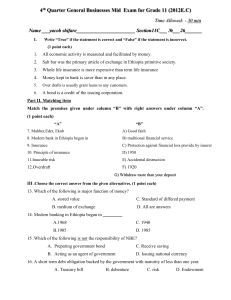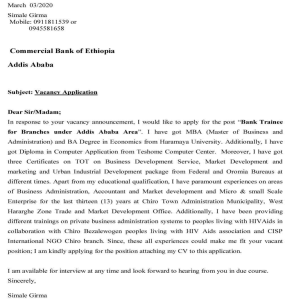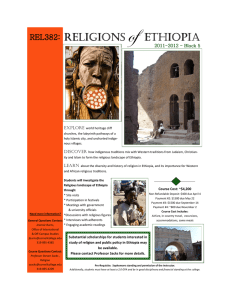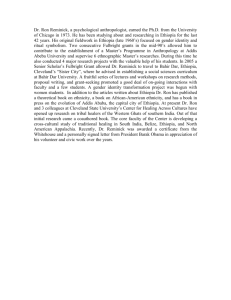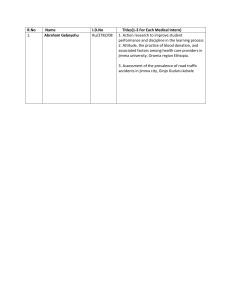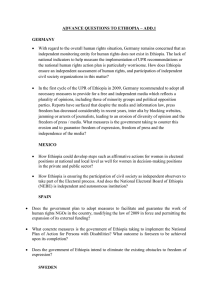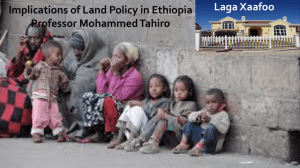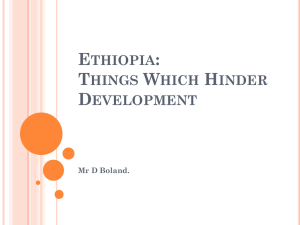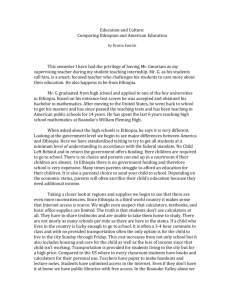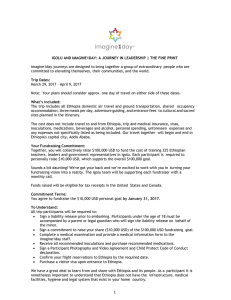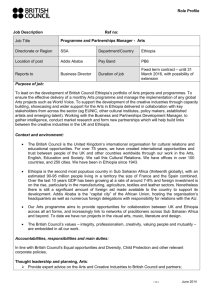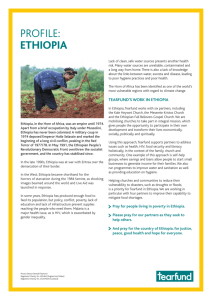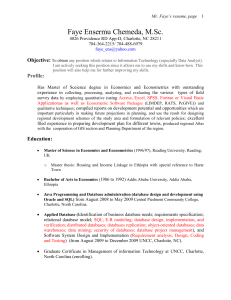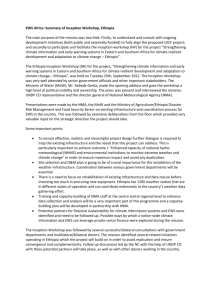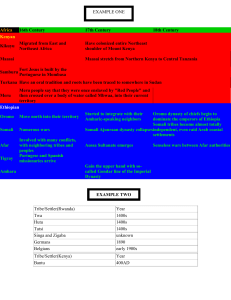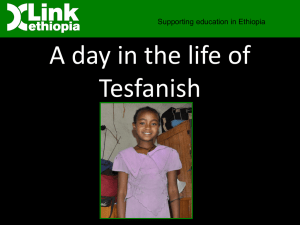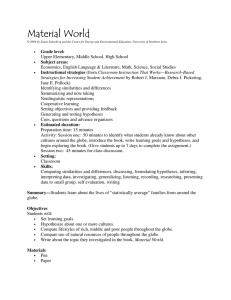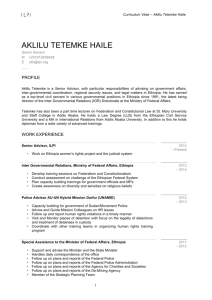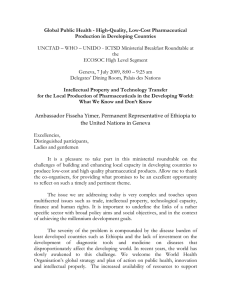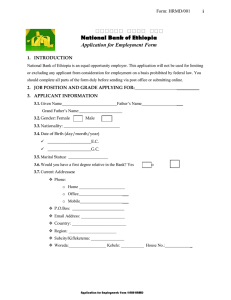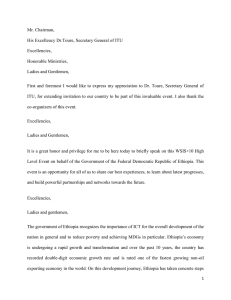Prezentace aplikace PowerPoint
advertisement
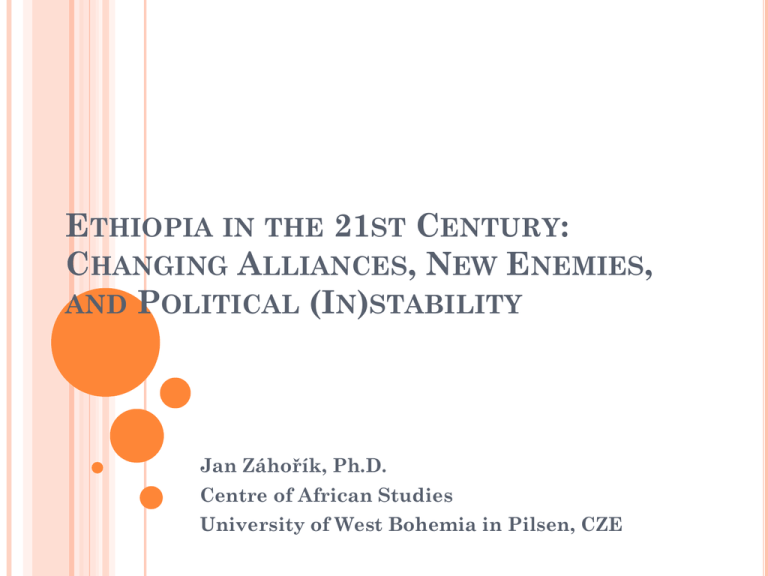
ETHIOPIA IN THE 21ST CENTURY: CHANGING ALLIANCES, NEW ENEMIES, AND POLITICAL (IN)STABILITY Jan Záhořík, Ph.D. Centre of African Studies University of West Bohemia in Pilsen, CZE INTRODUCTION Interconnection of global and local How global trends affect socio-economic and political development of Ethiopia How local realities influence political (in)stability in Ethiopia HORN OF AFRICA War-torn countries: Sudan, Somalia Instability: Djibouti, Eritrea, Ethiopia Relative stability: Somaliland (paradoxically??) ETHIOPIA AT THE BEGINNING OF THE 21ST CENTURY Involvement in Somalia‘s conflict Ogaden, Oromia, Gambella Cross-border violence, ethnicity Centralization Dictatorship MACRO PERSPECTIVE Until 1990s: EU, USA, etc. Now: China, India, Saudi Arabia, Turkey, Iran, United Arab Emirates Regional hegemony, strategic position MICRO PERSPECTIVE Meles Zenawi: dictatorship Ethnic favoritism, elimination of opposition parties/activists EPRDF: 545 seats of 547 OROMO NATIONALISM Various forms of nationalism Govt involved in local conflicts and tensions Diaspora – main sponsor of anti-govt propaganda Lack of coherence – regional and religious differences Great potential of Oromia POLITICAL ISLAM Recent phenomenon Saudi Arabia and Iran – ideological export Dire Dawa, Harar, Jimma Radical interpretations of Islam Govt supporting some Islamic organizations = weakening the Oromo nationalism WHERE FOREIGN MEETS LOCAL Rennaissance dam, etc. No public debate Dubious results Corruption Land grabbing International interests vs. local needs and demands CONCLUSION 1) Ethiopia wants to be a regional leader (economic, political, diplomatic) 2) Internal problems are so huge that such projects as Rennaissance dam can dramatically worsen already fragile socioeconomic situation 3) Political and religious tensions on the rise due to the failure of the govt to provide basic needs and demands to ordinary people THANK YOU VERY MUCH Merci beaucoup Vielen dank Děkuji velice Mutio obrigado Tack så mycket Muchas gracias Amesegenalehu

